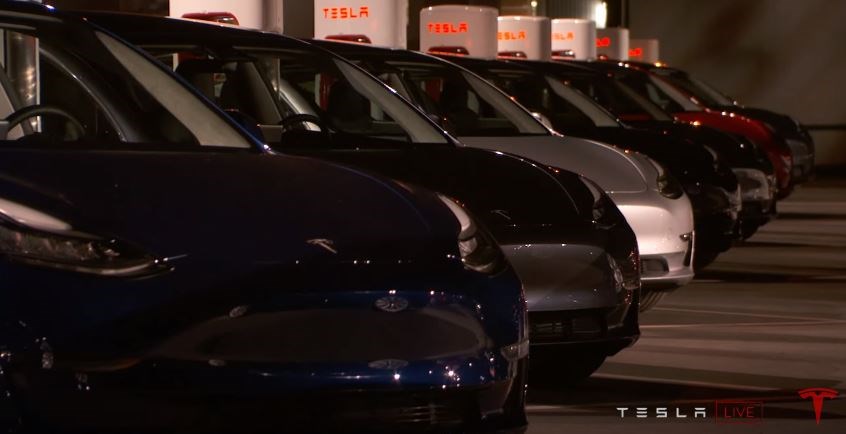Tesla’s plan to close many of its physical retail stores as it shifts towards an all-online sales model "will force the whole industry to accelerate the move to online car sales”, it has been claimed.
At a press conference overnight, the California-based electric vehicle (EV) manufacturer’s chief executive, Elon Musk, announced the radical shift as part of a bid to deliver on a promise to make the brand’s Model 3 saloon available for $35,000 (£26,400) in its home market.
To date, the average selling price exceeded $50,000.
The firm said it was shifting to an online-only sales model to make the lower price "financially sustainable", the BBC reported.
The BBC reported that Tesla had suggested closure of its physical stores would realise cost savings of around 5%, however Musk declined to say how many stores would close, or how many people will lose their jobs as a result of the changes.
Production issues, higher prices and other delays have blighted the delivery of the Tesla Model 3 since 40,000 customers pledged an interest to buy the car following its official unveiling in 2016.
The firm managed to scrape a profit in the final two quarters of 2018, but expects to post a loss for the first three months of this year, Mr Musk said.
Scott Gairns, managing director of Sophus3, which held its annual digital retail summit in London this week, said that Tesla’s move towards purely online sales “will force the whole industry to accelerate the move to online car sales”.
Gairns said: “Tesla’s announcement that they are closing most of their retail outlets will force the whole industry to accelerate the move to online car sales and is yet another example of where the industry is following behind other sectors such as finance, retail and electronics.
“With a target of a 900% increase in EV sales over the coming three years across the industry, most other car brands will have to follow Tesla to remain competitive.
“Our data shows that EV sales are currently costing five-times more to generate online for OEMs than conventional engine cars, so this is another example that efficiencies need to and can still happen in the sales process.
“The fact remains that with a good digital sales and marketing strategy, you no longer need salespeople to sell great products.”
When Hyundai UK launched its much-anticipated Kona EV into the UK market in the summer of 2018 it chose to do so wholly through online sales.
The brand’s former chairman and chief executive, Tony Whitethorn – who was inducted into the AM Hall of Fame at the AM Awards 2019 last month – described manufacturer’s development and manufacture of alternative fuel vehicles (AFVs) as “hugely, hugely expensive”, adding that the technology was, as yet “not making any money today”. He said: “They are a big, big loss leader.”
But despite the crisis of profitability currently faced by car manufacturers as they make the move into alternatively-fuelled vehicle (AFV) production, the online launch of the new Hyundai Kona EV quickly made it the Hyundai network’s “most profitable vehicle”, according to Whitehorn.
Speaking at AM Live in November last year, he revealed: “The car’s been on sale for two months and I’ve had 140 come into the country.
“If I’d sent one out to each dealer no one would have had one.
“As it is we have 700 orders today, with no discount, full up, and they haven’t seen the car yet.
“Customers have to go to the dealership to pick up the car and there they have the chance to sell a service plan, accessories and the dealership receives the full margin. It’s the most profitable car that we sell.”














Login to comment
Comments
No comments have been made yet.